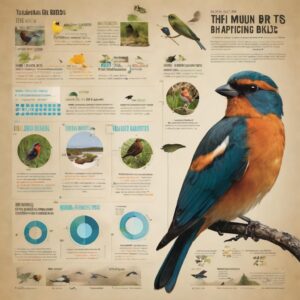
Pet Health Care: A Complete Guide to Keeping Your Pet Happy and Healthy
Common Health Issues in Pets
Ear infections are one of the most common health problems in pets. Dogs, in particular, are prone to ear infections due to their floppy ears and their habit of digging and exploring. Ear infections can be caused by various factors, such as bacteria, yeast, mites, or foreign objects. Some common signs of an ear infection in pets include excessive scratching or rubbing of the ears, redness or swelling of the ear canal, and a foul odor coming from the ears. If left untreated, ear infections can be quite painful for pets and may even lead to more serious complications.
Another common health issue seen in pets is dental disease. Just like humans, pets can also suffer from tooth decay, gum disease, and other dental problems. Poor dental hygiene can lead to a buildup of plaque and tartar on the teeth, which can cause gum inflammation, tooth loss, and even infections. Some signs of dental disease in pets include bad breath, difficulty chewing or eating, drooling, and pawing at the mouth. Regular dental care, including brushing your pet’s teeth and providing them with appropriate chew toys, can help prevent dental disease and ensure their oral health.
Preventive Measures for Pet Health
Taking preventive measures for your pet’s health is crucial to ensure their overall well-being. One of the most important steps you can take is to keep up with their vaccinations. Vaccinations not only protect your pet from various diseases but also help in curbing the spread of contagious illnesses. It is essential to follow the recommended vaccination schedule provided by your veterinarian to ensure your pet is protected throughout their life.
Another preventive measure that shouldn’t be overlooked is regular parasite prevention. Fleas, ticks, and other parasites can wreak havoc on your pet’s health. They not only cause discomfort but can also transmit diseases. Using appropriate preventive products, such as flea and tick collars, topical treatments, or oral medications, can help keep these pesky parasites at bay. Additionally, practicing good hygiene by regularly cleaning your pet’s living space and grooming them can also help prevent the infestation of parasites.
The Importance of Regular Vet Check-ups
Regular vet check-ups are essential for maintaining the overall health and well-being of our beloved pets. These check-ups play a crucial role in preventing and detecting potential health issues at an early stage, ensuring prompt and effective treatment. During these visits, the veterinarian conducts a thorough physical examination, checking for signs of illness, abnormalities, or any changes in your pet’s body. They may also perform various diagnostic tests like bloodwork, urinalysis, or X-rays to get a comprehensive understanding of your pet’s health status.
In addition to the physical examination and diagnostic tests, regular vet check-ups also allow for discussions regarding any concerns or questions regarding your pet’s health. The veterinarian can provide important guidance on nutrition, exercise, behavior, and other aspects of your pet’s care. These check-ups serve as an opportunity to ensure that your pet is receiving the appropriate preventive treatments, such as vaccinations, parasite control, and dental care. By prioritizing regular vet check-ups, you are taking proactive steps to optimize your pet’s health and ensuring a longer, happier life for your furry friend.
Nutrition and Diet for Pet Well-being
Providing a well-balanced diet is essential for maintaining the overall health and well-being of our pets. Just like humans, pets require a variety of nutrients to support their growth, development, and daily functions. A healthy diet for pets typically consists of high-quality proteins, carbohydrates, fats, vitamins, and minerals.
When determining the appropriate diet for your pet, it is important to take into consideration their age, breed, size, and any specific health conditions they may have. Consult with your veterinarian to develop a customized nutrition plan that suits your pet’s needs. It is crucial to avoid overfeeding or underfeeding your pet, as both can lead to various health issues. Additionally, remember to provide fresh and clean water at all times to keep your pet properly hydrated.
Ensuring that your pet receives the right nutrition and diet is an investment in their long-term health and happiness. A well-balanced diet can help prevent obesity, promote healthy growth and development, boost their immune system, and improve their coat and skin condition. By taking the time to understand your pet’s nutritional needs and providing them with appropriate food, you can contribute to their overall well-being.
Exercise and Physical Activity for Pets
Being active is essential for maintaining the overall health and well-being of our pets. Just like humans, pets also need regular exercise to stay fit and ward off potential health issues. Exercise not only helps pets maintain a healthy weight but also provides mental stimulation and reduces behavioral problems.
It is important to provide pets with appropriate exercise opportunities that match their breed, age, and energy levels. Dogs, for instance, benefit from daily walks, runs, or playtime in an enclosed yard. Cats, on the other hand, can be encouraged to stay active with interactive toys and climbing structures. Regular exercise not only keeps our pets physically fit but also strengthens the bond between pet and owner.
Grooming and Hygiene Tips for Pets
Grooming plays a vital role in maintaining the overall hygiene of your furry companion. Regular brushing helps to remove loose fur and prevent matting, especially for long-haired breeds. It also stimulates the skin, distributing natural oils, and promoting a healthy coat. Additionally, grooming sessions provide an opportunity for you to check for any abnormalities such as lumps, ticks, or fleas. Moreover, keeping your pet’s nails trimmed is essential to prevent discomfort or injury caused by overgrown nails.
Maintaining proper hygiene goes beyond just brushing and nail trimming. It is important to regularly clean your pet’s ears to prevent ear infections, especially for dogs with floppy ears. Use a veterinarian-recommended cleaning solution and gently wipe away any dirt or wax buildup. Additionally, dental care is crucial for your pet’s oral health. Regular brushing with pet-safe toothpaste and providing dental treats or toys can help prevent tartar buildup and gum disease. Remember, maintaining good grooming habits not only enhances your pet’s appearance but also contributes to their overall well-being.
Vaccinations and Parasite Prevention
Vaccinations play a vital role in protecting pets from various diseases that can be detrimental to their health. These vaccines boost the pet’s immune system, allowing them to fight off infections more effectively. It is essential for pet owners to follow a proper vaccination schedule recommended by their veterinarian. By ensuring that their pets receive the necessary vaccinations, pet owners can minimize the risk of their furry friends contracting and spreading contagious diseases.
In addition to vaccinations, parasite prevention is also crucial for the overall well-being of pets. Fleas, ticks, and worms can cause significant health issues if left untreated. Regular use of appropriate preventive treatments such as flea and tick collars, topical solutions, or oral medications is necessary to keep these pesky parasites at bay. Pet owners should consult with their veterinarian to determine the most suitable parasite prevention products for their pets and ensure they are used consistently. By staying proactive in preventing parasites, pet owners can help safeguard their pets’ health and provide them with a comfortable and happy life.
Mental Stimulation and Enrichment for Pets
Mental stimulation and enrichment play a vital role in maintaining the overall well-being of pets. Just like humans, pets need mental exercise to keep their minds sharp and engaged. One way to provide mental stimulation for pets is through interactive toys and puzzles. These toys can challenge their problem-solving skills and keep them entertained for hours. Additionally, engaging in training sessions with your pets not only strengthens the bond between you but also provides mental stimulation as they learn new commands and tricks.
Another way to enrich your pet’s mental well-being is through environmental enrichment. Creating a stimulating environment can prevent boredom and destructive behavior in pets. Simple things like providing scratching posts for cats, hiding treats around the house for dogs to find, or giving them access to a window with a view can all contribute to their mental stimulation. Furthermore, rotating their toys, introducing new scents or textures, and even playing calming music can help keep their minds active and engaged. Overall, mental stimulation and enrichment are essential for promoting a happy and well-rounded life for our beloved pets.
Dental Care for Pet’s Oral Health
Regular dental care is vital for maintaining the oral health of our furry friends. Just like humans, pets are prone to dental problems such as gum disease, tooth decay, and bad breath. Neglecting their dental hygiene can lead to pain and discomfort for our beloved companions.
To ensure your pet’s oral health is in top condition, there are a few simple steps you can take. Firstly, regular brushing of your pet’s teeth is essential. Using a specially designed toothbrush and toothpaste for pets, gently clean their teeth in a circular motion. It is important to gradually introduce this routine to your pet since they may feel uneasy at first. Additionally, giving your pet dental treats and toys can help in cleaning their teeth and gums, reducing the buildup of plaque and tartar. Remember, good dental care is essential for your pet’s overall well-being.
Signs of Illness and When to Seek Veterinary Care
Closely monitoring your pet’s health is crucial for their overall well-being. While our furry friends may not be able to tell us when they are feeling unwell, they often exhibit certain signs that something is amiss. It is essential for pet owners to be familiar with these signs, as they can indicate a potentially serious underlying health issue. Common signs of illness in pets include changes in appetite, lethargy, excessive drinking or urination, vomiting, diarrhea, coughing, sneezing, and unusual behavior. If you notice any of these signs or any other abnormalities in your pet’s health, it is important to seek veterinary care promptly.
Knowing when to seek veterinary care is essential for ensuring that your pet receives timely and appropriate treatment. In general, it is recommended to consult a veterinarian if your pet’s symptoms persist for more than 24 hours or if they worsen rapidly. Additionally, any signs of severe pain, difficulty breathing, inability to urinate or defecate, or sudden collapse should be considered as emergencies that require immediate veterinary attention. Keep in mind that each pet is unique, and their tolerance to pain may differ, so it is always better to err on the side of caution and seek professional advice when in doubt. Remember, early detection and intervention can make a significant difference in your pet’s health outcomes.


